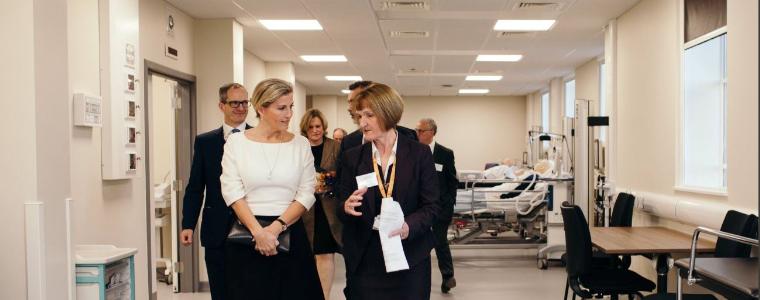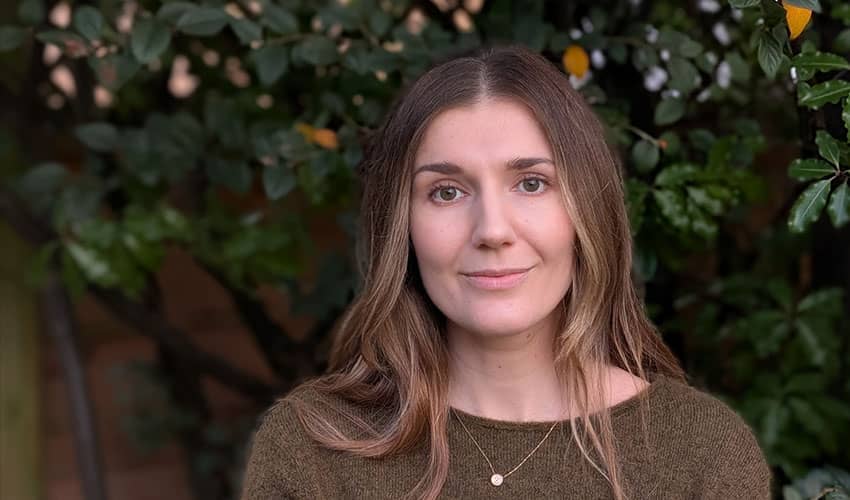Specialist wound research centre officially opened

A new centre aiming to minimise the psychological and physical impact of scarring among armed forces personnel and civilians wounded in terrorist attacks has been opened.
The Scar Free Foundation Centre for Conflict Wound Research, which will include work by UWE Bristol's Centre for Appearance Research (CAR) and other partners, was opened by Her Royal Highness The Countess of Wessex at Birmingham's Queen Elizabeth Hospital.
The new world-class centre is a ground-breaking national facility that marks a vital step in achieving the foundation's goal of achieving scar free healing within a generation. It has the potential to improve the lives of people in the UK who live with a physical scar which affects their wellbeing. Over 6,000 British armed forces personnel have sustained injuries in recent conflicts that are likely to have altered their appearance is some way. CAR's three-year project, funded by The Scar Free Foundation, will explore the psychosocial impact of these disfiguring injuries and develop bespoke psychosocial interventions to help veterans and their families adjust to living with scars.
Brendan Eley, Chief Executive of the Scar Free Foundation, said: “The physical and emotional effects of scarring are serious and often life changing. Our aim is to deliver scar free healing within a generation by establishing a pioneering programme of medical research in the UK. The launch of this centre is an important part of achieving our goal, and by working with world leading experts, scientists, and researchers, we are discovering revolutionary new treatments that will transform the lives of millions worldwide.”
Along with UWE Bristol, the centre has been established in partnership with the University of Birmingham, University Hospitals Birmingham NHS Foundation Trust and The CASEVAC injured veterans club. Research undertaken at the centre will cost £4.8 million over three years. This is being funded by the Chancellor using LIBOR funds of £3 million alongside an additional £1.5 million from the foundation's partners.
Related news

16 February 2026
UWE Bristol researchers awarded grant to explore impact of asset recovery on offenders
UWE Bristol academics have been awarded funding to explore of the impact of asset recovery on deterring offender behaviour and disrupting crime networks.

10 February 2026
Work by UWE Bristol lecturer features in Government’s National Cancer Plan
Work by a UWE Bristol academic has been included in the Government’s National Cancer Plan.

23 January 2026
On-demand minibus services beneficial in rural areas but face financial challenges, trials suggest
Trials of ‘demand responsive transport’ minibus services boosted connectivity for people in rural and suburban areas, according to a new report produced by UWE Bristol researchers.

18 December 2025
UWE Bristol professor appointed National Institute for Health and Care Excellence CEO
Jonathan Benger CBE, Professor of Emergency Care at UWE Bristol, has been appointed as the new chief executive officer of the National Institute for Health and Care Excellence (NICE).

17 December 2025
Findings revealed from first UK study into experiences of mothers who are survivors of rape pregnancy
UWE Bristol academics have revealed the findings of the first UK-based study of the experiences of mothers who are survivors of rape pregnancy.

11 December 2025
Social media influencer work is far more demanding than it looks, research finds
A study exploring the mental health impacts of social media influencer work has revealed that life online is far more demanding than it appears.

25 November 2025
UWE Bristol experts join film Q&A exploring music and melodrama
Academics will take part in the Cary Comes Home Festival, with a post-screening Q&A exploring music, melodrama and emotional storytelling in classic cinema.

17 November 2025
Urgent reform needed to support ambulance-delivered end of life care, study finds
More than three quarters (78 per cent) of paramedics sometimes fear doing the wrong thing when caring for people in the last year of life, new research has found.

13 November 2025
Bristol’s screen industry experiences “boom-and-bust cycle” after post-pandemic recovery, new research from UWE Bristol finds
New research from UWE Bristol provides detailed insight into Bristol's screen sector.

13 November 2025
New AI research to revolutionise animal welfare
A UWE Bristol research project will combine behavioural science and AI to create technology that understands not only what animals do, but how they feel.

10 November 2025
Lessons from Low Traffic Neighbourhoods will drive better public engagement, study finds
Lessons from Low Traffic Neighbourhoods have informed a new toolkit to improve engagement with the public on challenging local street issues.

06 November 2025
First-of-its-kind study aims to help more people spend their final days at home
A new study will explore how architectural design could support end-of-life care in domestic settings.






